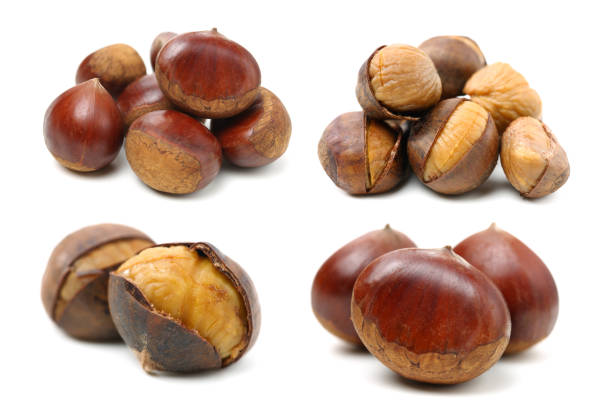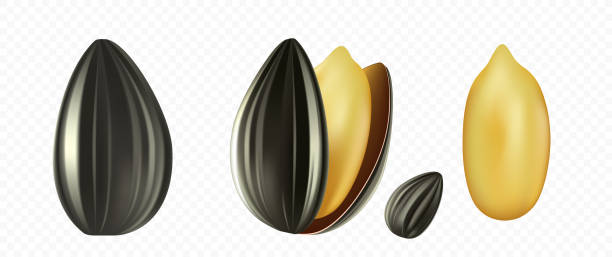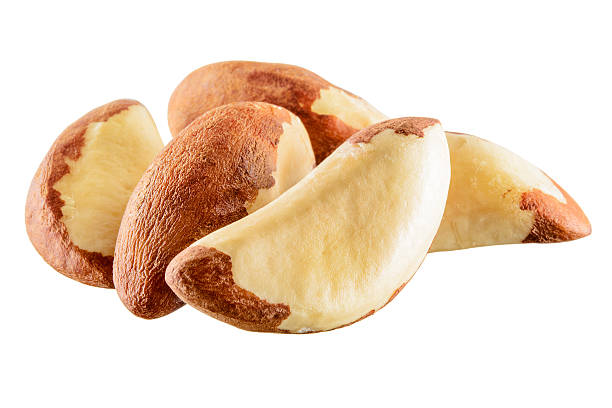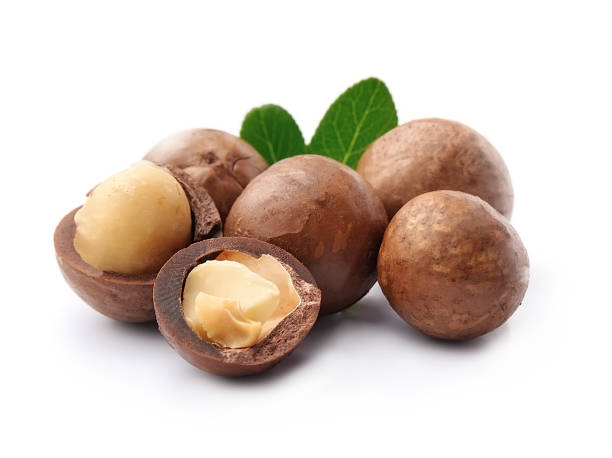In the world of nuts, chestnuts stand out not only for their rich, earthy flavor but also for their unique nutritional profile. Originating from large deciduous trees, chestnuts are distinct from other nuts in that they boast a lower fat content and a significant contribution to complex carbohydrates. Let’s explore the nutritional richness that makes chestnuts a wholesome nutritional powerhouse.
Low in Fat, High in Good Carbohydrates:
Unlike many other nuts, chestnuts are remarkably low in fat. Instead, they are rich in complex carbohydrates, making them a unique source of energy. The carbohydrates in chestnuts are primarily in the form of starch, providing a sustained release of energy. This characteristic sets chestnuts apart, making them a favorable choice for those seeking a nut with a different nutritional emphasis.
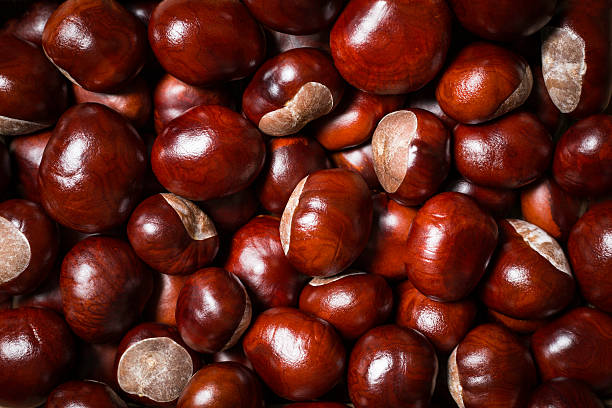
Dietary Fiber for Digestive Health:
Chestnuts are an excellent source of dietary fiber, contributing both soluble and insoluble fibers to the diet. This fiber content supports digestive health by promoting regular bowel movements, preventing constipation, and fostering a healthy gut microbiome. The fiber richness of chestnuts adds a satisfying and digestive-friendly dimension to these nuts.
Abundant in Essential Minerals (Copper, Manganese):
Chestnuts are particularly rich in certain essential minerals. Copper, crucial for iron metabolism and overall connective tissue health, is present in significant amounts. Additionally, chestnuts provide manganese, essential for bone formation and antioxidant defense. The mineral ensemble in chestnuts supports diverse physiological processes, including cardiovascular and skeletal well-being.

Vitamins for Nutrient Diversity (Vitamin C, B Vitamins):
Chestnuts contribute to the vitamin spectrum, featuring vitamin C, albeit in lower amounts compared to fruits like oranges. Vitamin C acts as an antioxidant, supporting immune health and collagen synthesis. Chestnuts also contain various B vitamins, including B6, folate, and niacin. These B vitamins play essential roles in energy metabolism, nervous system function, and the synthesis of DNA.
Antioxidant Properties:
While chestnuts may not be as rich in antioxidants as some fruits, they still contain certain compounds with antioxidant properties. These antioxidants contribute to neutralizing free radicals, potentially reducing oxidative stress and inflammation. Regular inclusion of chestnuts in the diet may support cellular health and contribute to overall well-being.
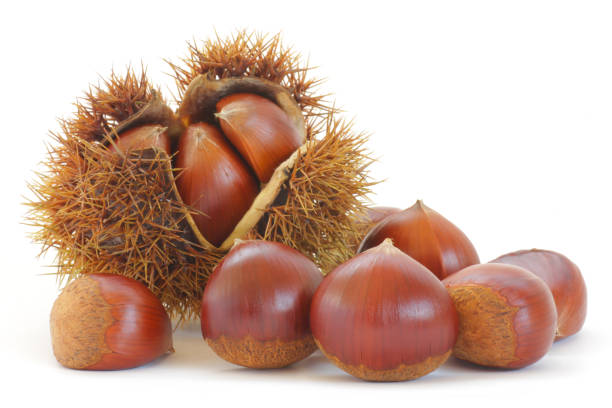
Culinary Versatility:
Chestnuts’ culinary versatility extends beyond being enjoyed as a roasted winter treat. They can be incorporated into both sweet and savory dishes, from stuffing and soups to desserts and purees. Their mild, sweet flavor adds a unique touch to a variety of culinary creations.
Nutrient-Dense and Low Calorie:
Chestnuts are nutrient-dense, providing a range of essential nutrients while being relatively low in calories. This makes them a satisfying and healthful option for those looking to balance their caloric intake while obtaining a diverse range of nutrients.
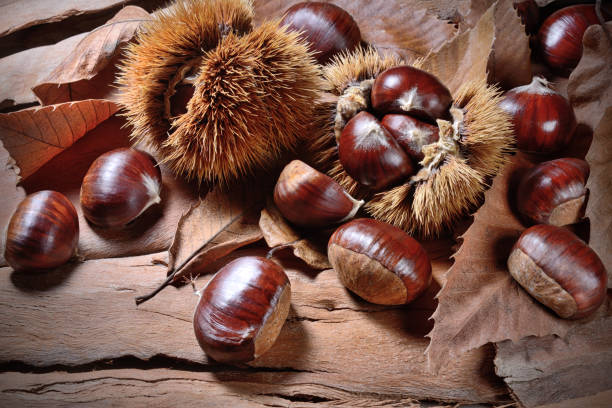
In conclusion, chestnuts, with their emphasis on complex carbohydrates, fiber richness, and nutrient diversity, stand as a nutritional powerhouse in the realm of nuts. As we savor their distinct flavor and appreciate their culinary adaptability, we partake in a journey that celebrates not only the winter warmth but also the healthful benefits of chestnuts. From supporting digestive health to providing essential minerals, chestnuts remain a symbol of both comfort and nutrition in the diverse landscape of nuts.

